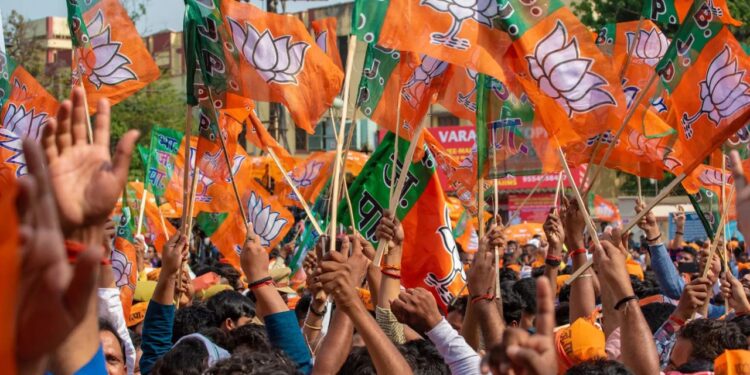The Election Commission of India (ECI) recently directed the removal of a video shared by the Bharatiya Janata Party (BJP) Jharkhand on its social media platforms, citing a potential violation of the Model Code of Conduct (MCC) during the ongoing Jharkhand assembly elections.
In a letter dated November 17, the ECI instructed Jharkhand’s Chief Electoral Officer (CEO) to ensure the immediate takedown of the video. Following this directive, the BJP Jharkhand deleted contentious advertisements from social media accounts. The ECI has also demanded a detailed explanation from the BJP regarding the alleged breach of the MCC.
The controversy began after the Indian National Congress (INC) and the Jharkhand Mukti Morcha (JMM) filed complaints against the video. They accused the BJP of sharing “misleading, communal, and malicious” content that could incite division. The video, posted on November 16, depicted a house displaying a JMM banner and a poster of a figure resembling Chief Minister Hemant Soren. It included the caption, “Poore Jharkhand ka kaya palat kar denge.” It allegedly portrayed a group of individuals from a specific community forcefully entering the house with the intent to occupy it.
Upon reviewing the complaints, the ECI found that the video appeared to breach the MCC, which governs conduct during elections. The commission further invoked Section 79(3)(b) of the Information Technology Act, 2000, which holds social media intermediaries accountable for failing to act against unlawful content when notified by the authorities.
The incident has unfolded against the backdrop of the high-stakes Jharkhand assembly elections, with polling for the first phase conducted on November 13. The second phase is scheduled for November 20, and the final results will be declared on November 23, alongside the Maharashtra election results.
Social media platforms have been at the center of intense campaigning by political parties, but the BJP’s controversial video has ignited significant debate. The video’s content and timing have drawn criticism for allegedly targeting specific communities and political opponents, raising questions about the ethics of campaign strategies during elections.
The ECI’s swift action underscores its commitment to maintaining a fair electoral process and curbing any content that violates the MCC or stokes divisive narratives. This episode highlights the increasing scrutiny of social media campaigns during elections and the growing accountability of political parties and intermediaries under Indian law.

















